Victorian literature, a vibrant and transformative phase in the literary world, emerged during the reign of Queen Victoria from 1837 to 1901. This era, bore witness to profound industrial and social changes. Literature evolve in unprecedented ways as a natural response to all this change. Interestingly, the experience of reading and the types of literature available varied significantly between the wealthy and the poor. While the affluent had access to a broad range of novels, poetry, and non-fiction, the less fortunate often relied on serialized stories in magazines or cheaper, abridged versions of popular works.
The opulent drawing rooms of the wealthy buzzed with the latest serialized novels, while the working-class homes, usually much less literate, relied on cheaper publications or oral storytelling. This dichotomy mirrored the vast social disparities of the time. It also influenced the themes and tone that started to emerge in the literature of the time.
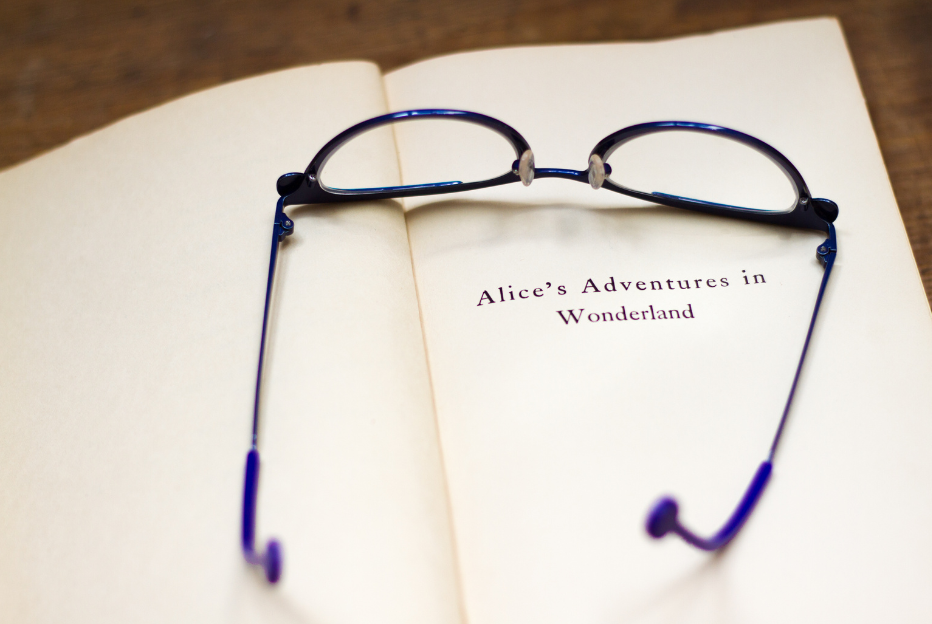
What We Mean By Victorian Literature
Victorian literature simply refers to the body of literary works produced during Queen Victoria’s reign. It’s significance in terms of this time in history though, is monumental. This was an era of significant transformation in British society. The vast changes in society were mirrored in the themes, styles, and narrative forms emerging. The literature of this era is characterized by its diversity, ranging from the romantic escapism of early Victorian novels to the more realistic, socially conscious works of the late Victorian period.
The Changing Styles Of Victorian Writing
The Victorian era witnessed a remarkable shift in literary styles and themes. A transition from romanticism, with its emphasis on emotion and individualism, to a more realistic and grounded portrayal of society and its issues. Key shifts included:
From Solitude to Society
- Early Victorian Era: Literature in the early period often focused on the experiences of the individual. Particularly around emotions and inner struggles, emphasising personal growth and romantic ideals.
- Later Victorian Era: As the Victorian era advanced, the literary focus shifted to societal issues. Poets, novelists and philosophers took to exploring the dynamics of social class. Particularly the impact of industrialisation and the complexities of urban life. As they witnessed the hardships that came with ‘progress’, literature became their tool for exploring social reform and public morality.
Nature to Industry
- Early Victorian Era: Nature was a dominant theme in early Victorian writing. Often idealised as a source of beauty and inspiration. As a symbol of moral purity. The Romantic influence was clear to see in the portrayal of pristine rural landscapes and natural settings.
- Later Victorian Era: As the Industrial Revolution transformed the British landscape, literature began to reflect the contemporary realities of the shift to industrialisation. Particularly the impact of industry on urbanisation, and environmental degradation. The contrast between the pastoral and the industrial became a critical theme.
From Abstract Concepts to Real Issues
- Early Victorian Era: Literature in the early Victorian period, often explored abstract concepts such as love, beauty, and heroism. Written works had a strong focus on idealism and a firm stance on moral virtues.
- Later Victorian Era: As the 19th Century advanced, writers started addressing concrete social issues. Themes started to gravitate around poverty, gender inequality, workers’ rights and the effects of industrialisation on society. Novels started to become very popular, a medium for social critique and commentary.
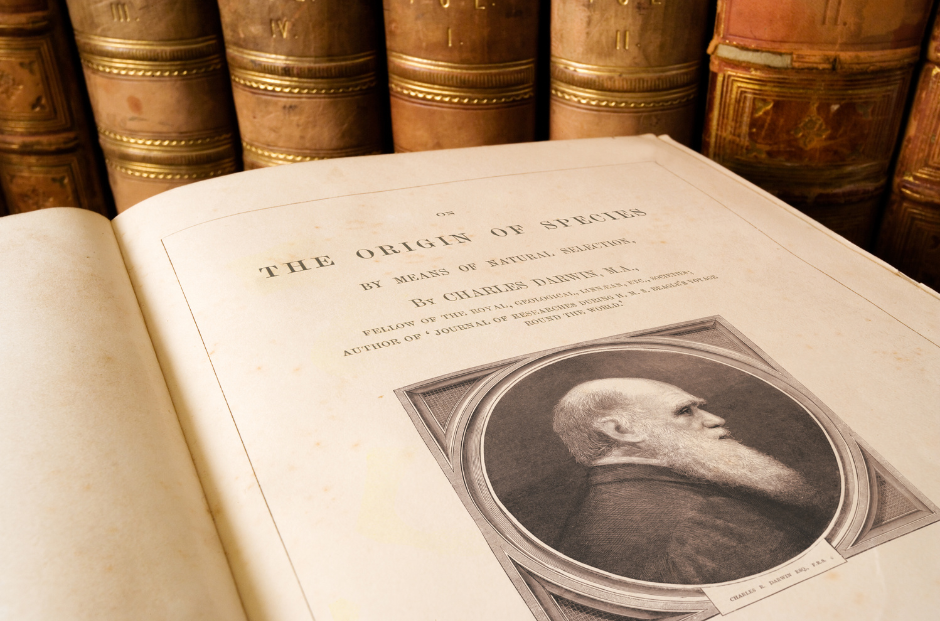
Spiritualism to Pragmatism
- Early Victorian Era: At the start of the Victoria’s reign, there was a strong emphasis on spiritualism and religion. Morality was firmly tied to these ideas. The evolutionary theories of writers like Charles Darwin had yet to arrive and it was a deeply religious time. Literature reflected the religious nature of society at the time.
- Later Victorian Era: A shift towards pragmatism occurred later in the Victorian period. Written works started to explore more practical, existential concerns. Writers – such as Darwin – started to question traditional religious beliefs, to explore other scientific and philosophical possibilities. On the Origin of Species is possibly the greatest example of this.
From Optimism to Agnosticism
- Early Victorian Era: Literature was marked by a sense of optimism and faith in progress and human goodness.
- Later Victorian Era: This optimism gave way to agnosticism and scepticism. Victorian writers such as Huxley, Eliot and Darwin for example, began to question established beliefs and institutions, reflecting a growing uncertainty about the future and the nature of truth.
Lyricism to Criticism
- Early Victorian Era: The writing style was often lyrical, with a focus on beauty, emotion, and poetic expression.
- Later Victorian Era: The style evolved into a more critical and analytical approach. The style evolved into a more critical and analytical approach. Writers would use their work to examine, critique and often challenge norms and standards. They started to analyse the human condition with a more realistic and sometimes cynical tone.
Organicism to Compromise
- Early Victorian Era: Literature was seen as an organic whole, with a belief in the interconnectedness of all parts of a work to create a harmonious and unified effect.
- Later Victorian Era: This belief in organic unity gave way to a more flexible approach, where compromise and diversity in themes and styles were embraced. Literature became more fluid and open. It would often include a mix of genres, narrative techniques and varied perspectives. A clear change from the rigid format that came before.
The Victorian era’s contribution to the evolution of literary forms is perhaps the greatest since the age of antiquity. There is no other period of writing as widely studied as this. Particularly when looking into the origins of modern literary sensibilities.
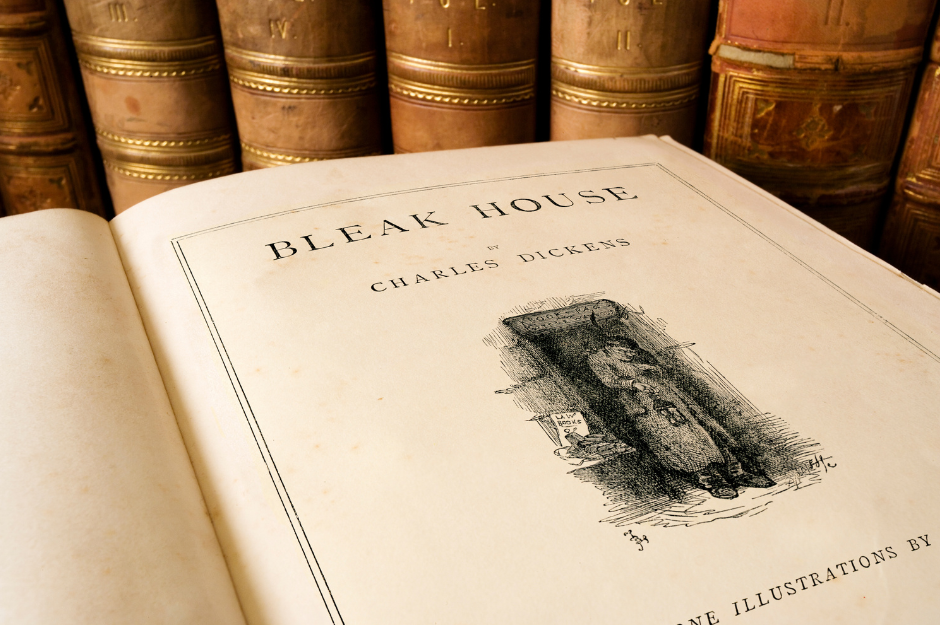
Prose Fiction
Prose fiction in the Victorian era had a particular focus on social issues and was particularly characterised by a moralistic tone. As the style evolved, fiction became more diverse. New themes emerged, ranging from romance and adventure to social realism and psychological depth. Charles Dickens novel ‘Bleak House’ (1853), is a classical example of prose fiction in the era. Dickens remains the most read novelist of the Victorian era, but there were many novelists writing about lots of different contemporary themes.
Poetry
Victorian poetry ranged from the traditional forms and themes of early Victorian poets to the more experimental and symbolist works of the late Victorian period. Poetic themes reflected the era’s changing social and intellectual landscape. Exploring big, current issues like industrialisation, faith and personal identity.
As the Poet Laureate, Alfred Tennyson’s work perhaps best encapsulates the spirit of the Victorian era. His poem ‘In Memoriam A.H.H.’ (1850) is a profound exploration of grief and faith, written in memory of his friend Arthur Hallam.
Drama
Victorian drama saw a revival towards the end of the era, with playwrights like Oscar Wilde and George Bernard Shaw bringing wit, social criticism, and new ideas to the stage. The late Victorian period also saw the rise of musical theatre, variety performance and the popularisation of comic operas.
Wilde’s plays were among the most popular of the late Victorian era. ‘The Importance of Being Earnest’ (1895) is a pinnacle of Victorian comedy, blending farce with a sharp critique of social conventions.
Children’s Literature
Children’s literature became a popular writing form during the Victorian era. Classics like Lewis Carroll’s ‘Alice’s Adventures in Wonderland’ (1865) and Anna Sewell’s ‘Black Beauty’ are beautiful examples of the form. A lot of the writing in this genre combined entertainment with moral lessons, and many of these stories remain very popular today.
Victorian Non-Fiction
Science & Religion
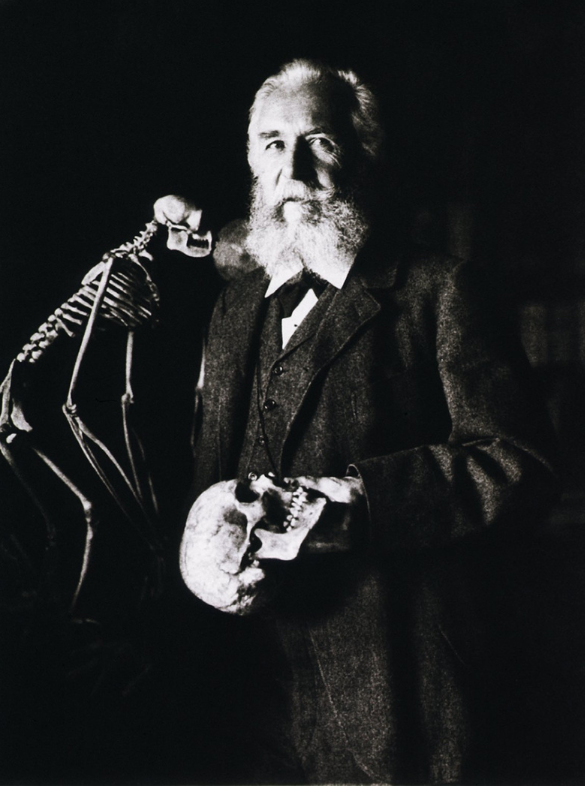
The Victorian era was a time of great scientific discovery, with works like Charles Darwin’s ‘On the Origin of Species’ challenging existing beliefs. Darwin’s work was paradigm shifting. It was a real disruptor to dogmatic religious beliefs that dominated Europe in the Centuries before. It wasn’t that evolutionary theories replaced religion, but they added significant weight to alternative theories. To the scientific processes of theory, hypothesis, evidence and research.
On the other side of the fence you had writers like William Paley with the ‘Watchmaker’ analogy in his earlier book ‘Natural Theology or Evidences of the Existence and Attributes of the Deity’ (1802) who explored the argument for intelligent design by comparing the nature and complexity of the working body, to that of the design and complexity to the parts of a watch.
The Victorian era was an incredibly exciting time for debate between science and religion. Christianity split into numerous different sects with slightly different takes on the religion. Science on the other hand, had the legitimacy and breathing room it needed to advance.
Philosophy
Philosophy in this time of change, explored themes like liberty, utilitarianism and the role of the individual in society. Literature moved from a more optimistic view of progress and human nature to a more questioning, sometimes pessimistic, perspective on society and the individual’s place within it.
A great example of the kind of philisophical writing emerging at the time, can be seen in John Mill’s ‘On Liberty’ (1859). This is a seminal work advocating for individual freedom and liberty. A great example of the philosophical thinking influencing both Victorian society and modern political thought.
The Supernatural
The supernatural was a popular emerging theme in Victorian literature. Authors brought to life creepy tales that awakened the era’s fascination with the unexplained and the mystical.
Bram Stoker’s ‘Dracula’ (1897) is a prime example of Victorian fascination with the supernatural. It blended folklore, horror and contemporary social themes that gave people plenty to think about. It might be argued that if not for Mary Shelley’s ‘Frankenstein’ (1818) there would not have been Dracula.
Frankenstein masterfully blended elements of the Gothic novel with the emerging genre of science fiction. It explored the moral and ethical consequences of man’s pursuit of knowledge and the ability to create life. Themes that resonated deeply with the Victorian audience.
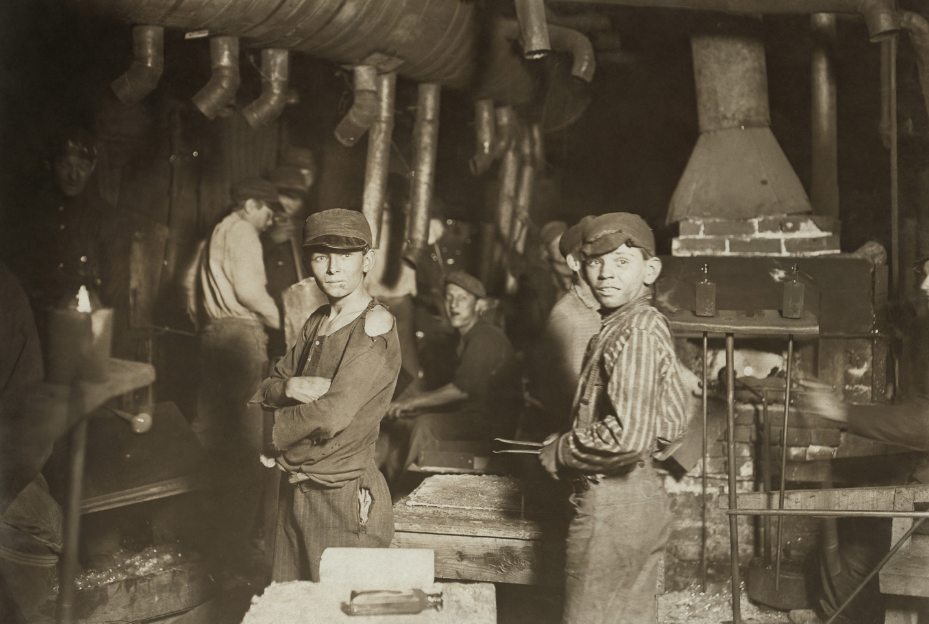
Influences on Victorian Writing
The Victorian era’s literature was shaped by many influences, some of the most important are:
- The Industrial Revolution: The rapid industrialisation and urbanisation of Britain profoundly impacted the themes and settings of Victorian literature, highlighting social issues and class disparities.
- Scientific Advancements: Discoveries in science and scientific theory, provided space for new intellectual debate. A challenge to the old dogmatic ways. Charles Darwin’s theory of evolution for example, challenged traditional beliefs and influenced literary themes.
- Social Reforms: Movements for workers rights, labour laws, and education reform found their voice in the literature of the time. Philanthropists like Barnardo, Rowntree and Charles Booth also explored (in some cases surveyed) working class life, and introduced ways to help and ‘pull up’ the poor and needy.
- Colonialism: The British Empire and it’s expansion across the world influenced Victorian literature. Authors like Rudyard Kipling and H Rider Haggard captured the imagination of readers with tales set in distant colonies. They often romanticised the empire’s expansion, but there were other authors that had a more critical view of darker aspects of the empire. Joseph Conrad’s ‘Heart of Darkness,’ for example, questioned the moral and ethical underpinnings of colonialism.
- Technological Innovations: While the original Gutenberg press had been monumental in the Renaissance and the Reformation, it was the industrial scale press that led the way to mass media and the democratisation of knowledge. With industrial scale printing, books and news papers became more accessible, leading to a rise in literacy and a broader readership.
15 Novels That Shaped the Victorian Era
- “Jane Eyre” by Charlotte Brontë (1847): A ground-breaking novel exploring themes of morality, religion, and women’s independence.
- “Wuthering Heights” by Emily Brontë (1847): A tale of passionate and tragic love, reflecting the complex social structure of the time.
- “David Copperfield” by Charles Dickens (1850): A semi-autobiographical novel that addresses the societal issues of its time.
- “Vanity Fair” by William Makepeace Thackeray (1848): A satirical representation of British society during the early 19th century.
- “Middlemarch” by George Eliot (1871-72): A study of provincial life, exploring themes of marriage, idealism, and self-interest.
- “Great Expectations” by Charles Dickens (1861): A coming-of-age novel that explores themes of class, ambition, and personal growth.
- “Tess of the d’Urbervilles” by Thomas Hardy (1891): A novel critiquing Victorian society’s attitudes towards women and sexuality.
- “The Picture of Dorian Gray” by Oscar Wilde (1890): A philosophical novel discussing beauty, youth, and moral corruption.
- “The Strange Case of Dr Jekyll and Mr Hyde” by Robert Louis Stevenson (1886): A novel exploring the duality of human nature.
- “Alice’s Adventures in Wonderland” by Lewis Carroll (1865): A children’s story with underlying themes of absurdity and logic.
- “Far from the Madding Crowd” by Thomas Hardy (1874): A novel depicting rural society and challenging Victorian sexual norms.
- “Bleak House” by Charles Dickens (1853): A critique of the British judiciary system, blending realism and satire.
- “North and South” by Elizabeth Gaskell (1854-55): A novel exploring the conflict between the industrial North and rural South of England.
- “The Mayor of Casterbridge” by Thomas Hardy (1886): A tragic novel examining the impact of personal choices.
- “The Woman in White” by Wilkie Collins (1859): One of the first mystery novels, it also critiques the treatment of women.
Influence of Victorian Literature at Home and Abroad
Victorian literature had a profound impact both in the UK and internationally. Emerging themes around social reform, moral questioning and exploration of human nature resonated globally. Influencing writers and readers alike, for generations to come. The focus on realism and character development set new standards for novel writing. At the same time, the exploration of societies burning issues helped shape public opinion and policy.
Some of the Most Famous Victorian Writers
- Samuel Butler (1835–1902)
- Arthur Hugh Clough (1819–1861)
- Wilkie Collins (1824–1889)
- A. E. Housman (1859–1936)
- William Henry Giles Kingston (1814–1880)
- Letitia Elizabeth Landon (1802–1838)
- Mary Louisa Molesworth (1839–1921)
- R. D. Blackmore (1825 – 1900)
- George Moore (1852–1933)
- Walter Pater (1839–1894)
- Coventry Patmore (1823–1896)
- John Ruskin (1819–1900)
- John Millington Synge (1871–1909)
- Charlotte Mary Yonge (1823–1901)
- Arthur Conan Doyle (1859–1930)
This list includes some of the most influential writers of the Victorian era, whose works continue to be read and studied for their literary merit and their insightful commentary on the society of their time.